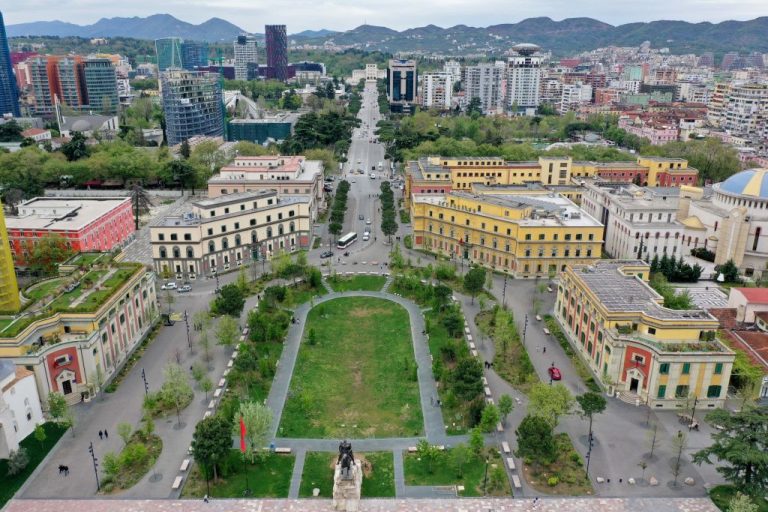Although life carries on as normal for citizens of the United States and Canada, unrest in the world of emerging markets is starting to boil as smaller economies have been hit harder by the high price of crude oil and a strengthening U.S. dollar.
Videos emerged on the English Twittersphere of massive protests in Albania, a NATO member country, calling for the ruling government to resign that appear to show multiple tens of thousands of people in the streets.
English-language website Albanian News reported on July 7 that the demonstrations were peaceful, conducted in front of Prime Minister Edi Rama’s office, and organized by former Democratic Party leader Sali Berisha.
Unrest stems from “huge price hikes,” high costs of fuel, and a slowing job market.
The outlet also stated that protestors on the scene said they came out to challenge “poverty, corruption, and crime,” as well as “depopulation.”
Success
You are now signed up for our newsletter
Success
Check your email to complete sign up
Albania is a small country of only 2.8 million people nestled northwest of Greece.
Website Balkan Insight stated on July 7 that Albania posted a 6.7 percent inflation rate, which Central Bank Governor Gent Sejko was paraphrased as saying “might not have peaked.”
The outlet also paraphrased the Governor as saying, “While the country is expected to avoid a recession, growth will likely fall.”
Sejko was directly quoted as defining inflation as “the biggest danger that threatens the long-term sustainable growth of the country.”
In response to high inflation, the Central Bank shocked its economy, hiking the key interest rate 100 basis points from 0.25 to 1.25 percent.
For comparison, the Federal Reserve has been reluctant to raise rates more than 50 basis points. The Fed was finally forced to raise 75 basis points last month after the U.S. Consumer Price Index posted an 8.6 percent increase, the highest since 1981.
The bump was the largest since 1994.
Albanians also hit the streets over a rising cost of living in March, according to Balkan News, after the price of gasoline hit 2 Euros a liter, a jump of 30 cents.
3.78 liters constitute a U.S. gallon.
Prime Minister Rama took a very Joe Biden-like stance towards the problem, saying he was, “Ashamed that a NATO country doesn`t understand the consequences of the war in Ukraine,” in a statement.
Rama distributed “the poorest families” a central bank airdrop of 3,000 Lek (24 Euros approx.) and raised the minimum wage to 30,000 Lek (242 Euros approx.) in response, the article stated.
The outlet noted, “The price of oil in Albania is significantly higher than in other Western Balkan countries due to numerous taxes imposed by previous governments, including a tax imposed by Rama in 2014 to 2015.”
Albania’s Gross Domestic Product is roughly $14.8 billion and its per capita GDP is $6,494 according to data from the World Bank.
This puts the country in better fiscal shape than Iran, which may be suffering famine, at $2,756, and Sri Lanka at $3,814.
Sri Lanka is notable as protestors besieged the Presidential Palace, burning it to the ground, on July 9 after the Government banned sales of propane and gasoline to the public as the country went completely bankrupt.
Albania’s currency has deflated against the US Petrodollar to the tune of 15 percent since June of 2021, moving from an exchange rate of 100:1 to 115:1.
The US Dollar Index currently sits at approximately 107, its highest point since 2002, placing greater pressure on the economy as the price of crude has skyrocketed.

















